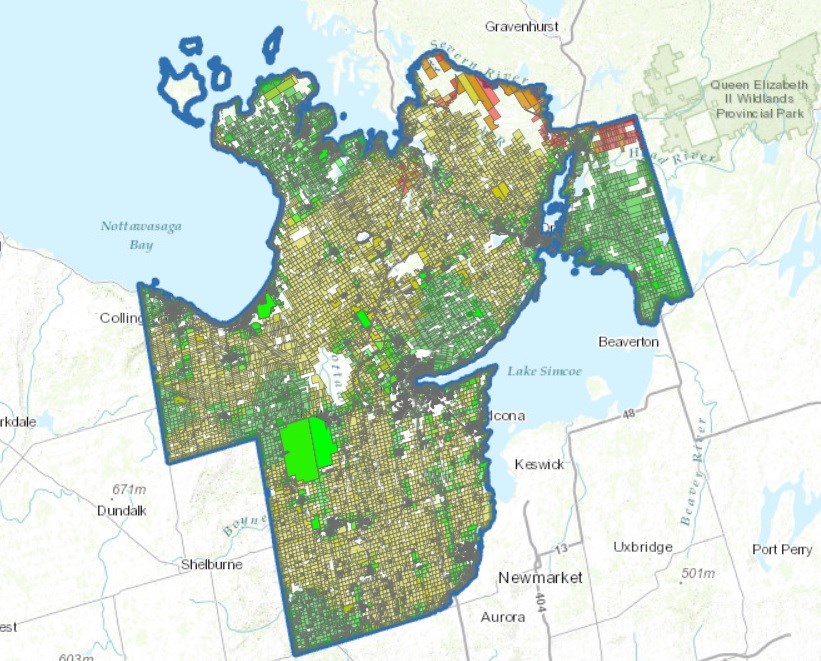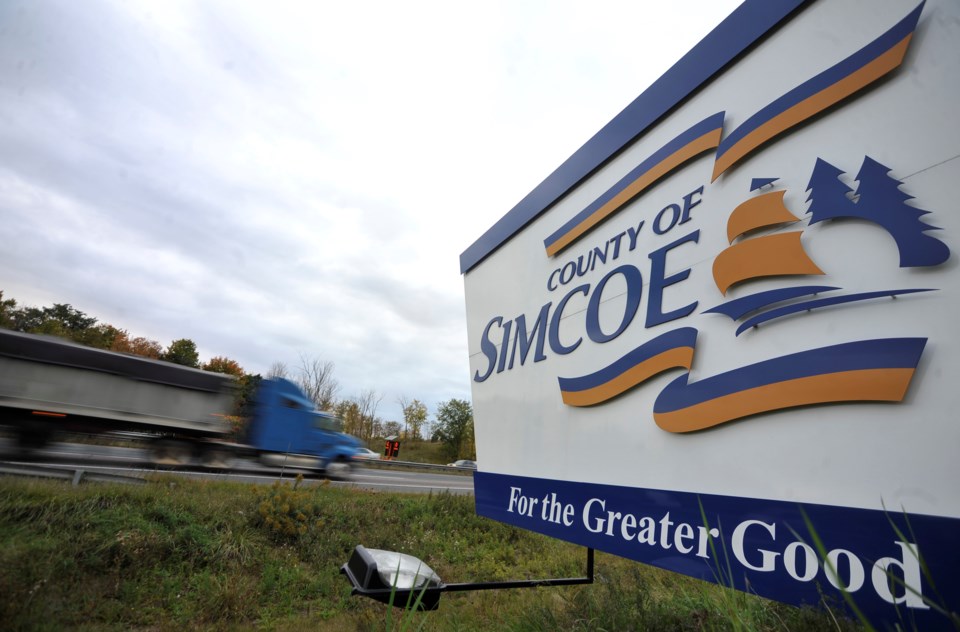Although opinions may differ on the certain aspects of upper-tier government, there's one common thread that all 16 County of Simcoe member municipalities appear to have as they embark on a provincial review: the county should not be dissolved.
The Tories introduced legislation last month, dubbed the 'Hazel McCallion Act,' to dissolve Peel Region and have its three municipalities stand on their own starting Jan. 1, 2025. Since then, questions have been raised about what that could mean locally.
For Simcoe County — as well as Durham, Halton, Niagara, Waterloo, and York regions — the provincial government will appoint “regional facilitators” in the coming weeks to examine how well the upper- and lower-tier government relationships are working.
During its May 23 meeting, Simcoe County councillors voted in favour of a motion formally requesting "engagement and facilitation" with the province on planning and co-ordination of growth-related services.
Member municipalities range as far south as Bradford West Gwillimbury, which is one of the fastest-growing municipalities in Simcoe County. Although Bradford Mayor James Leduc acknowledged the local council fully supports the province’s review of regional governments, and Simcoe County in particular, he hopes the review will thoroughly consider the unique circumstances of each area and recommend improvements tailored to those differences.
“A one-size-fits-all approach will not work,” he said.
Leduc says dissolving Simcoe County would be a mistake.
“We are a large, diverse geography with relatively small, scattered urban centres facing unprecedented growth pressures," he said. "Regional-scale co-ordination of waste management, social services, transportation, water and wastewater systems, and emergency services will be critical in our area for years to come.

"Change is required at Simcoe County in the areas of governance, service delivery and the manner in which we represent the interests of our constituents, but I believe that a two-tier system will continue to be our best path towards the future,” Leduc added.
Bradford West Gwillimbury Coun. Jonathan Scott said he believes there are both pros and cons to being part of the county, noting the pros typically include services many don’t consider.
“We don’t see the pros too often because they’re sort of out of sight, out of mind — like garbage collection and other things that individual municipalities need to do on more of a regionalized basis ... but I am sure they are helpful," Scott said. "The cons are that we are the southernmost municipality — suburban, diverse — and one of the fastest growing and we have a lot more in common with the GTA than we do with cottage country."
Scott believes his municipality’s needs differ greatly from the more rural member municipalities, adding he doesn’t always feel that Bradford gets its fair share back from the county.
“(We have) the highest real estate values in the county yet we pay a disproportionate share of the taxes," he added. "A lot of our needs, whether it’s multilingual resources at libraries, which the county cut, or economic development where we’d like to focus on manufacturing and agriculture — but their (economic development focuses more on tourism — or even transit needs differing across the county. The point is we need governance reform so there is fairness in terms of representation by population in the composition of county council."
Up in northern Simcoe County, the mayors of both Midland and Penetanguishene say they are in full support of the review, and believe it can only help in finding important efficiencies to help provide better services to residents.
“The county asked to be part of the review because we are proud of how efficiently and effectively we deliver services and would welcome the province to help us improve even more with additional funding,” said Midland Mayor Bill Gordon, adding an example of that is the large increase the county just received for affordable/social housing and homelessness programs.
“I’m not feeling threatened by this review and, as we all know, we exist as creatures of the province, so we will keep delivering on our service mandate welcoming any opportunity to improve until we are re-organized or modified at the whim of the province,” he added.
Gordon says some changes, such as the elimination of planning oversight by an upper-tier body like the county, make sense when considering the province has the final say in municipalities' Official Plans as it is and appoints the judicial review body for appeals via the Ontario Land Tribunal, which is tasked with ensuring conformity to the plans, including the overarching Provincial Policy Statement.
Downloading other county services such as social housing, land ambulance, waste, forestry management, social programs like Ontario Works, and long-term care, however, would not be financially viable for small communities, he added.
“Just trying to staff those initiatives (multiple) times across our 16 members (hypothetically) seems counterproductive and yields no level of efficiency or savings," Gordon said. "I try not to dwell on things I cannot control, so instead I’m focusing my efforts on planning approvals and working with developers to grow our community both for residential and commercial projects.
"If given the chance, I’ll happily support signing a housing pledge and working diligently with my council to deliver over this term,” he added.
Penetanguishene Mayor Doug Rawson agreed, adding he fully supported and voted in favour of the request to be included in the review. From the perspective of lower-tier governments, such as his town, there is simply no way they could provide the same level of service the county provides to the Georgian Bay town.
“We need that ability to work with our colleagues across the 16 municipalities, and I think it’s a really important relationship for us,” said Rawson, adding he feels so strongly that he recently brought forward the county motion around his own council table, which was fully supported.
Rawson said his council will be sending the same letter of support to the minister of municipal affairs to let him know they also fully support the county.
“I think everybody is of the mindset that we are more than willing to open the books and see if there is a better way and (see) if we are as efficient as we need to be," he said. "If there’s an area where we could be more efficient, then we are open ears … as long as it’s not impacting the service level to our residents.
"None of the lower tiers can deliver the services that the county delivers. I think they deliver a tremendous service and from a cost perspective … we can’t even compete," Rawson added.
In an emailed response, Barrie Mayor Alex Nuttall said it was “premature” for him to offer comment on the issue and that he will be awaiting the results of the provincial review to assess any impacts to the city’s service delivery.
Both Barrie and Orillia are separated cities, however they do pay into county coffers for several services, including paramedic and social services.
A spokesperson for the Association of Municipalities of Ontario (AMO) said they are not taking a position on the issue.
